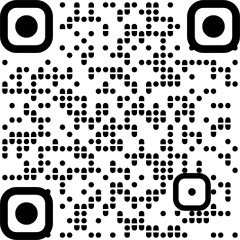Chennai: The Indian Association of Gastrointestinal Endo Surgeons (IAGES) partnered with the technology leaders in robotic-assisted surgery to conduct their 21st national conference in Chennai. The four-day conference was focused on Innovation, Safety and Excellence, and training and upskilling of healthcare professionals on new-age surgical technologies like robotic-assisted surgery. The conference included over 11 subspecialty sessions and five fellowship courses that focused on the ergonomics of laparoscopic and robotic-assisted surgery in the field of gastroenterology and general surgery.
The conference was led by Dr S Easwaramoorthy, President, IAGES; Dr A Zameer Pasha, Organising Chairman; and Dr Randeep Wadhawan, Chairman, FALS Board.
Speaking at the event, Dr Easwaramoorthy said, “In the past few years, the healthcare sector has witnessed immense technological advancements, and it has been a privilege to be a part of this journey. One of the key advancements in general and gastrointestinal surgery is robotic-assisted surgery, by using advanced surgical technologies like the Da Vinci. With the theme of this year’s conference being Innovation, Safety, and Excellence, we focused more on sensitising and training surgeons on new-age MAS (minimal access surgery) technologies like robotic-assisted surgery for general surgery practices. We are glad to see the extent of enthusiastic participation by surgeons from different locations and encourage surgeons across the world to share their experience, and to learn from others’ experiences.”EFIAGES, FIAGES, FAGIE colonoscopy, FALS hernia, and FALS robotic hernia surgery were some of the courses conducted as a part of this conference, with hands-on demonstrations, training, and live lectures. The conference further included multiple sessions and orations from experts in the industry and panel discussions on robotic-assisted surgery.
While commenting on the fellowship in robotic-assisted surgery, Dr Wadhawan said, “These kind of courses are essential to encourage the discussion and exploration of new-age technologies used in surgery. While we focus on the adoption of novel technologies like robotic-assisted surgery, we also need to understand how to increase their accessibility across the country. We have also seen a rise in the adoption of robotic-assisted surgery in the recent past. However, to address the disease burden on our healthcare system, we need to further enhance the adoption of advanced surgical technologies, and initiatives like this can help create the environment required for that. The conference curated a comprehensive programme on leading robotic-assisted surgery technologies. It was heartening to see the enthusiastic participation from budding surgeons across India. Conferences with courses like these will eventually help in extending the benefits of robotic surgery to more people, which includes better clinical outcomes, less blood loss, reduced pain, minimum hospital stay, etc.”


